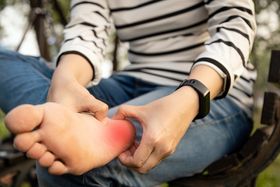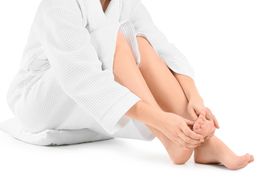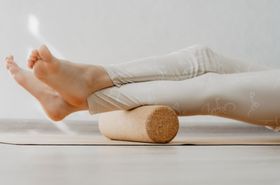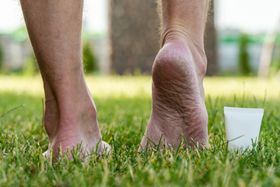Why You Should Wear Insoles if You Spend All Day in Work Boots
Updated February 20, 2023.
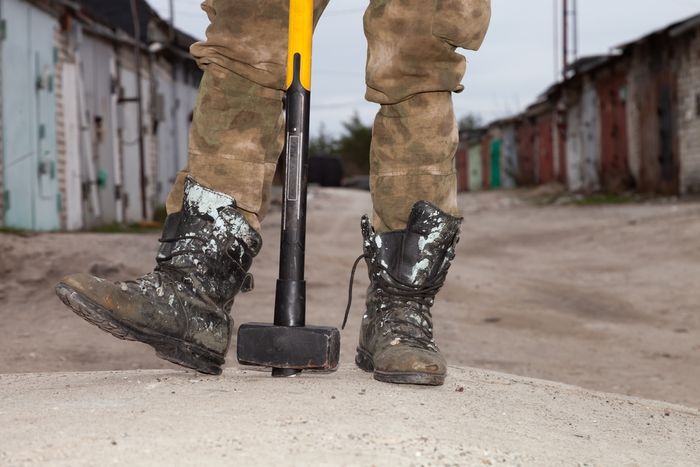
Work boots are designed to protect the feet and ankles from falling objects on the work site during a long day, making them usually heavy. The boots are built rigid and tough for this reason, and can commonly lead to pain and discomfort arising in the feet or ankle. Ankle pain when walking can be very uncomfortable and may result in you needing support such as arch supports.
The foot and lower leg may be prone to developing fatigue after wearing work boots all day due to the rigidity of the sole and the weight of the boots themselves. The boot does not support the sole adequately enough for long-term usage and has been associated with the development of heel pain.
Orthotics can be used in your work boots to support the sole, prevent pressure areas against the sole of the work boot, and aid in shock absorption through the heel. Orthotics inside your shoe can provide a stable and comfortable surface for your feet in your work boots or in any other shoe that you may have.
» Learn more about the necessity of wearing arch supports
Common Foot Conditions Caused by Work Boots
Work boots, by design, are not flexible and may take some time to wear after purchase. Worn-down or old work boots may increase your risk of developing heel pain.
- Heel spurs Heel spurs are a condition characterized by the development of a bone spur on the underside of the heel, usually arising in the weight-bearing area. The bone spur develops to a size where the tissue surrounding the bone spur is aggravated and may produce pain. One usually does not know they have a bone spur developing until the onset of pain. X-rays are usually used to make the diagnosis following the arise of clinical symptoms.
- Plantar fasciitis Plantar fasciitis is a common condition affecting many people globally, with the plantar fascia on the underside of the foot becoming inflamed and painful. The plantar fascia is responsible for dissipating the shock placed through the foot as the foot strikes the ground during walking or running activities. This can lead to a reduction in activity as the condition gets worse.
- Haglund's deformity This condition is characterized by a bony protrusion developing on the back side of the heel bones, where the Achilles tendon from the calf muscle attaches. Stiff, tight shoes alongside constant rubbing against the shoe is a likely cause of Haglund's deformity.
- Bunions Bunions are commonly seen in people who wear work boots for long periods and can be managed effectively using insoles for bunions. Bunions are an outward shift of the big toe towards the smaller toes, with a noticeable bony bump developing on the inside of the foot.
How to Protect Your Feet When Wearing Work Boots
Below are ways that help you look after your feet when you have had a long day in your work boots. These conservative strategies are cost-effective and do not require much effort to maintain over the long term.
- Orthotics Using orthotics in your shoes is a great cost-effective way to manage pain and discomfort arising in the feet throughout the work day. Read more below about how orthotics can help you.
- Stretching Stretching of the Achilles’ tendon and calf muscle can aid in lengthening the structures, which will, in turn, put less strain on the heel and allow for an increased range of movement in the ankle.
- Strengthening exercises You can strengthen the muscles of the foot and lower leg to accommodate the heavy work boot, thus reducing any strain placed on weaker muscles. Some examples of exercises you can try; are heel raises, toe raises and spreads, arch crunches, and single-leg balance exercises.
- Comfortable socks Thick, comfortable socks can aid in preventing the foot from rubbing against the sides of the shoes or boots, thus reducing potential blister formation and callus development.
- Sufficient space for your foot in the shoe Ensuring that the shoe provides enough space around the foot will help prevent pain from arising due to the foot rubbing against the side of the shoe or boot. Remember, the feet swell towards the end of the day within your shoes.
- Massage Self-massage of the underside of the foot and lower leg muscles can aid greatly in reducing pain and discomfort from arising in such areas. This can be done using your own hands or making use of a massage ball/roller.
- Weight management The reduction of weight can relieve the strain placed on the feet daily. Maintaining a healthy weight can greatly aid you in managing symptoms arising in the feet during a day of work.
How Long Do Insoles Last in Work Boots?
The typical lifespan of an orthotic is between six months and a year, depending on the frequency of use and the type of material used to create the orthotic. If you are making use of the orthotics regularly for long periods, you may need to replace them sooner than someone that uses them less regularly.
How to Choose the Best Insoles for Work Boots
Determining for which condition you intend to use orthotics is an important first step in the effective conservative management of your condition. The second step is to ensure that you choose the best insoles. Another important aspect is ensuring that you choose the best insoles for people on their feet all day. Whether you have plantar fasciitis, bunions, or conditions affecting the heel, there are different types of orthotics. Orthotics can be custom designed to support or relieve pressure on specific areas of the foot. Orthotics with effective cushioning and flexibility are a good choice for your work boots; provided there are no other notable conditions affecting the foot or ankle. Accommodations can be made to the orthotics to support your foot correctly under weight-bearing conditions, should you have an existing foot condition.





